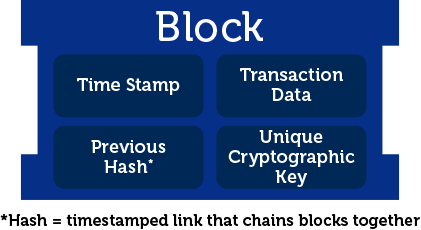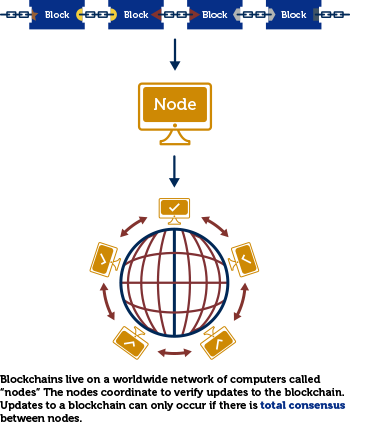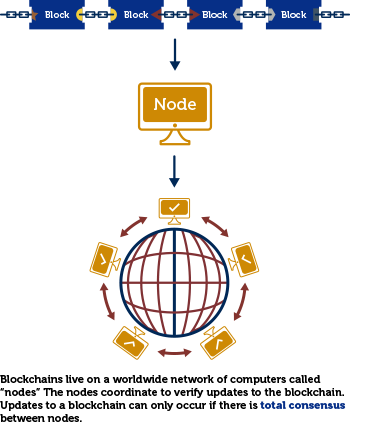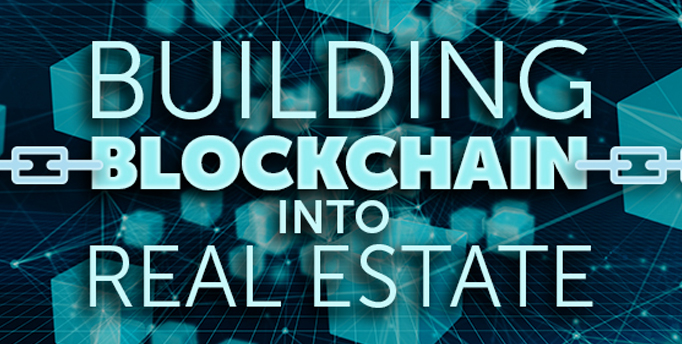What’s the latest tech buzzword you can’t escape in today’s market? Blockchain.
Volatile technology trends are the latest focus for those looking to get rich quick, but for people who don’t want to risk everything on the newest cryptocurrency, it makes sense to look at the underlying advancements responsible for these new fads. Behind some of the most popular buzzwords, such as cryptocurrency and Bitcoin, is the driving force of blockchain technology.

Blockchain was first conceived in 1991 and in 2008 came to life for use as a secure ledger system for the cryptocurrency Bitcoin, but it is now being explored for use in areas outside of financial recordkeeping. In a world where news of the latest data breach, wire fraud case or other cybercrime seems to cycle daily, some believe blockchain may be the key to advancing security in digital transactions.
What is Blockchain?
Blockchain technology creates an unchangeable record of every modification undergone by a piece of data. This record is encrypted into data blocks that contain both the new information and the history of every block that came before it, creating a chain of data blocks – hence, blockchain. The blockchain is distributed across a network of computers called “nodes.” Each node contains a complete copy of the information, which maintains the integrity of the blockchain, serving as a global ledger for all transaction and timestamp information.

 To add a new block of information to the chain, the historical data on the block must be verified against the blockchain record maintained across nodes. If the new block doesn’t match the blockchain stored in the other nodes, the new block cannot be added. This verification is what safeguards the transaction data and deters hacking. Hacking a blockchain, therefore, would require hacking every node computer in order to rewrite the blockchain’s history. This would be an incredibly difficult task, requiring more skill and resources than those needed to pull off a large-scale bank heist.
To add a new block of information to the chain, the historical data on the block must be verified against the blockchain record maintained across nodes. If the new block doesn’t match the blockchain stored in the other nodes, the new block cannot be added. This verification is what safeguards the transaction data and deters hacking. Hacking a blockchain, therefore, would require hacking every node computer in order to rewrite the blockchain’s history. This would be an incredibly difficult task, requiring more skill and resources than those needed to pull off a large-scale bank heist.
Blockchain enables people to move assets around the world in a secure manner without having to trust a middle man. By using a decentralized database of nodes, blockchain addresses data integrity issues related to the middle man, such as a bank or tech company trusted to ensure data privacy and security.
Originally meant for recording cryptocurrency, we’re now seeing that blockchain could potentially be used to record anything of value, such as birth and death certificates, rights to intellectual property, medical history, real estate transactions and more.
So, What’s Blocking Blockchain?
In order for blockchain to become a useable technology in the real estate industry, it would have to make its way past market barriers. Current barriers to blockchain integration include:
-
Technology – Despite first being presented many years ago, blockchain is still a relatively new technology. As blockchain exists now, the sheer number of daily transactions in the real estate industry are more than blockchain can handle.
-
Regulations – For the highly-regulated real estate industry, making changes to how government records are stored will be a slow process. Regulation change likely would need to occur from the top-down before blockchain could be incorporated in wider markets.
-
Prior Data – A blockchain system would need historical data to be imported to continue records for already existing property. But blockchain does not address data problems already in the old system. The new blockchain would thus inherit errors and inconsistencies present in the records.
-
Costs – Blockchain was partially created with the idea of cutting out transaction fees, but the high cost for developers or governing authorities to bring all necessary data into the blockchain would likely prevent them from offering the service for free. The cost of bringing this data into the blockchain also poses a risk for companies exploring how to lean in to the technology.
-
Privacy – Part of what makes blockchain more secure is its distributed nature. Through distribution across many different nodes, security is enhanced by resistance to collusion and a larger consensus check. While blockchain can provide greater security, it also has drawbacks when it comes to privacy and business incentive to give up proprietary data.
When talking about the future of technology, it’s best to use caution. Could self-driving cars transform our world into one where nobody actually drives a car? Maybe. Will every home in the future be connected to a smartphone? It’s possible. Will we ever get flying cars? Back to the Future Part II thought we’d already have them. Predicting where technology will bring us can be a fool’s game, but we do know that Old Republic Title intends to be here for our customers for years to come, regardless of how new technology evolves. For the benefit of us and our customers, we closely monitor industry evolution and the technology that can help us continue to do business the right way. Old Republic Title’s conservative management philosophy means we do our due diligence to make sure we’re taking steps to continue serving our policyholders with superior services and products while innovating for the future.




